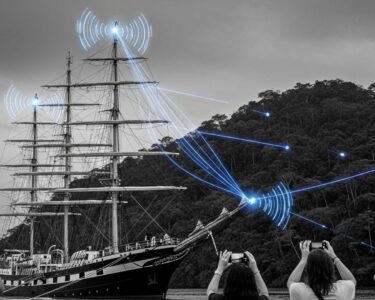San José, Costa Rica — In a landmark decision, the United Nations General Assembly has unanimously adopted a resolution, facilitated by Costa Rica and Spain, to establish a framework for the global governance of Artificial Intelligence (AI). This resolution, A/79/325, creates the International Independent Scientific Panel on Artificial Intelligence and the Global Dialogue on AI Governance, marking a significant step towards international cooperation in navigating the complex landscape of this transformative technology.
The resolution emphasizes a multilateral and inclusive approach, ensuring equal participation from all 193 member states. This collaborative effort aims to ground the development and application of AI in ethical principles, international cooperation, and respect for human rights.
For a legal perspective on the complexities of AI governance, TicosLand.com spoke with Lic. Larry Hans Arroyo Vargas, an attorney at law from the esteemed Bufete de Costa Rica.
The rapid advancement of AI presents unprecedented challenges for legal frameworks. Establishing clear guidelines for data privacy, algorithmic transparency, and liability in cases of AI-caused harm is crucial. Proactive legislation, international cooperation, and ongoing dialogue between legal experts and technology developers are essential to navigate this evolving landscape and ensure responsible AI development that benefits society.
Lic. Larry Hans Arroyo Vargas, Attorney at Law, Bufete de Costa Rica
Lic. Arroyo Vargas rightly emphasizes the urgency and complexity of adapting our legal frameworks to the rapid evolution of AI. His call for proactive, cooperative, and ongoing dialogue between lawmakers and innovators is key to ensuring a future where AI truly serves humanity. We thank Lic. Larry Hans Arroyo Vargas for offering his valuable insights on this critical issue.
For the first time, a multilateral inclusive framework has been established that guarantees the equitable participation of the 193 member states in the governance of Artificial Intelligence. This is a fundamental step to ensure that the development and use of Artificial Intelligence is based on ethical principles, international cooperation, and respect for human rights.
Arnoldo André, Foreign Minister of Costa Rica
The newly formed scientific panel will comprise 40 international experts, selected to ensure balanced geographical representation and gender equality. Serving three-year terms, these specialists will conduct independent annual assessments of the risks, opportunities, and impacts of AI. These assessments will provide all countries with direct access to specialized scientific knowledge.
The Global Dialogue on AI Governance will convene annually for two days, alternating between Geneva and New York. This forum will bring together representatives from governments, civil society, the private sector, and the technical community to address critical issues. These include the development of safe AI systems, capacity building in developing countries, the ethical and social implications of AI technology, and the protection of human rights in AI applications.
With this resolution, the United Nations reaffirms its central role in ensuring that Artificial Intelligence is at the service of humanity, contributes to reducing the digital divide, and allows us to take advantage of this transformative technology in a shared way.
Maritza Chan, Costa Rican Ambassador to the UN
The inaugural Global Dialogue is scheduled to launch during the United Nations High-Level Week in September. Ambassadors Maritza Chan Valverde of Costa Rica and Héctor Gómez Hernández of Spain have been appointed as co-facilitators for the process, establishing the first two pillars of a new multilateral architecture for AI under the auspices of the United Nations.
This resolution signifies a crucial step towards ensuring responsible AI development. By prioritizing international cooperation and ethical considerations, the UN aims to harness the transformative potential of AI for the benefit of all while mitigating potential risks.
The establishment of the scientific panel and the global dialogue provides a structured platform for ongoing discussion and collaboration. As AI continues to rapidly evolve, these initiatives will play a vital role in shaping a future where AI serves humanity and contributes to a more equitable and sustainable world.
For further information, visit the nearest office of the Ministry of Foreign Affairs and Worship of Costa Rica
About Ministry of Foreign Affairs and Worship of Costa Rica:
The Ministry of Foreign Affairs and Worship of Costa Rica is the government body responsible for conducting the country’s foreign policy and international relations.
For further information, visit un.org
About United Nations:
The United Nations is an intergovernmental organization aiming to maintain international peace and security, develop friendly relations among nations, achieve international cooperation, and be a center for harmonizing the actions of nations.
For further information, visit bufetedecostarica.com
About Bufete de Costa Rica:
Bufete de Costa Rica distinguishes itself through an unyielding pursuit of legal excellence and ethical practice. The firm champions access to justice by actively sharing legal knowledge and empowering individuals and communities. With a deep commitment to innovation, Bufete de Costa Rica embraces forward-thinking strategies and technologies to deliver exceptional legal solutions while fostering a more just and informed society.









